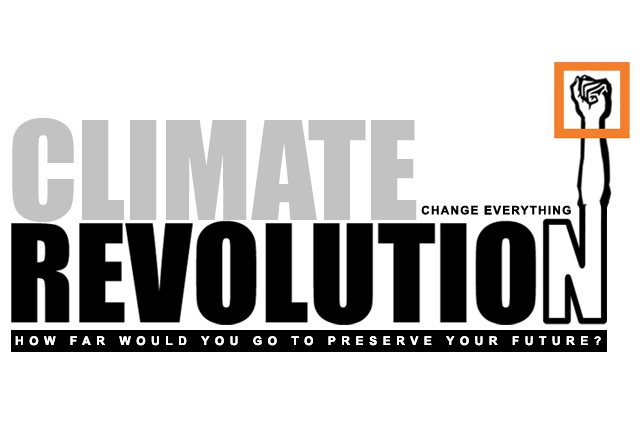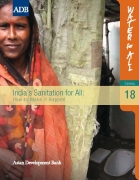Water is a foundation for development. Without it, there’s no economic growth, no industry, agriculture or cities. Disease and infant mortality thrive. The hours lost daily fetching water keep women out of work and children out of school. By diverting resources from where they’re most needed, corruption exacerbates the already difficult challenges.
Corruption in water costs lives. Investing in water infrastructure and governance means jobs, agriculture, health, education and environmental protection. It’s a straightforward path to progress; yet, too often the path is blocked by corruption. That’s why there is a need to address corruption risks, increase transparency and accountability in the water sector. Coalition building and partnerships are essential to generate knowledge, capacity and awareness to tackle corruption in water. Read more on corruption in the water sector.
Water Integrity Tools
The Annotated Water integrity Scan is a diagnostic tool for multi-stakeholder workshops, and has three main objectives:
-
Establish an overview of the integrity of different sub-sectors of the water sector, to highlight areas which are vulnerable to corruption
-
Identify priority areas for action to enhance water integrity
-
Increase awareness about the water integrity situation and stimulate improvement
The tool includes an implementation guide on the organisation, preparation and implementation of an AWIS workshop, which describes each step of the process and makes suggestions for follow-up.
| Organisations working on Water Integrity |
|
Transparency International (TI) is a non-profit, non-governmental organisation dedicated to fighting corruption. Active in nearly 100 countries and on the international stage, TI raises awareness of the devastating effects of corruption, and works with governments, businesses and international organisations to tackle corruption. Gateway is about collecting, sharing and expanding knowledge on corruption assessment. It allows those who wish to measure corruption to match their needs with existing diagnostic tools. Transparency International India (TII) is the accredited India chapter of Transparency International and is part of the Asia Pacific Forum comprising 20 nations. TII is a non-government, non-party and not-for-profit organisation of Indian citizens with professional, social, industrial or academic experience seeking to promote transparent and ethical governance and to eradicate corruption. The UNDP Water Governance Facility at SIWI (WGF) provides strategic water governance support to developing countries to advance socially equitable, environmentally sustainable and economically efficient management of water resources and water and sanitation services to improve the livelihoods of poor people. |
Tool sheets: A brief about various tools for assessing integrity in the water sector.
Integrity pacts: This pact is to ensure integrity in procurement processes, and has two main components:
-
a written agreement between the government and all bidders to refrain from bribery and collusion,
-
a monitoring system that provides for independent oversight and increased government accountability of the public contracting process.
Integrity pacts implementation guides have been developed specifically for the water sector.
The advocacy guide is a toolbox for advocating and campaigning on water integrity action.
The guide comprises five modules with various engaging, stimulating ideas and hands-on exercises for individuals and groups who want to get started in advocating for water integrity.
TAP risks
TAP risks is a tool that allows gaining a better understanding of the integrity of water service provision. The tool identifies relevant stakeholders and assesses the integrity of their relationships in terms of transparency, accountability and participation (TAP).
Citizen report cards
Citizen report cards are an interactive learning tool is designed to assist individuals and organizations interested in carrying out a Citizen Report Card (CRC) study in the water and sanitation sector.
The methodology collects user’s actual feedback on public services on selective indicators to make the provider accountable for any lapses or the poor condition of services. The commonly used indicators are access, usage, quality/reliability, hidden costs (including bribery) and level of satisfaction.
| Useful Links |
|
Reports, articles, papers
Videos
Photos, slideshows |
Training manual on water integrity
This training manual deals with the issue of integrity and anti-corruption in the water sector – one of the least addressed areas in the governance of water resources and services. It has been developed to assist in building institutional capacity, with water managers and other water decision-makers as the primary target group.
Water Management Transparency Index
This tool is designed to evaluate the level of transparency of water management. It is based on 80 indicators which look at:
-
general information about the relevant water agency,
-
public relations transparency in planning processes,
-
transparency in the use of water resources,
-
financial transparency, and
-
transparency in contracting
In addition, sase information sheets and tool sheets to support the use of this tool have been developed.
Corruption assessment in basic services
Corruption assessment in basic services are tools and methods which aim to diagnose corruption and/or corruption risks in the delivery of education, health and water and sanitation services. The scope of tools includes analyses of:
-
the overall political/governance situation in a sector
-
the flow of resources from government to service providers
-
the role of and relationships between different actors (e.g. service providers, service users, government officials)
-
specific processes within the broader system (e.g. health insurance, university admissions) and
-
particular corruption problems (e.g. teacher absenteeism, informal payments to doctors)
ASHWAS manual: This process handbook is to serve as a useful template for those planning to embark on a participatory household water and sanitation survey. The handbook has detailed out the scope of planning and execution along with the resources, skills and time needed at each stage of the survey.
|
|
/topics/corruption-and-integrity







 Content Courtesy:
Content Courtesy:  This discussion paper by
This discussion paper by 